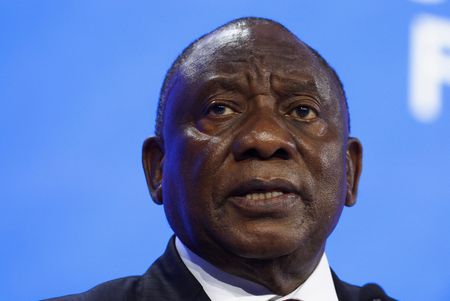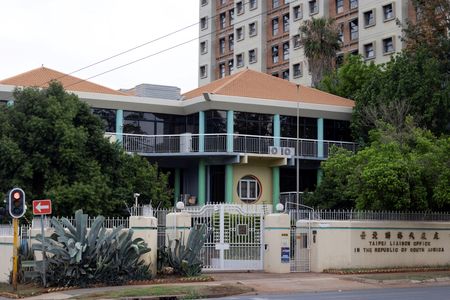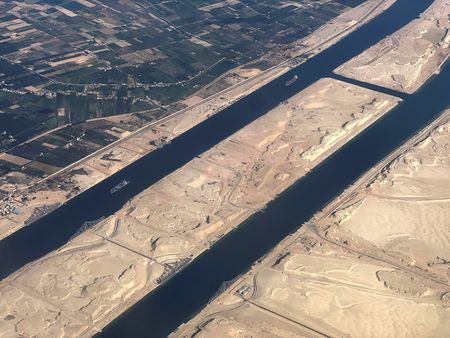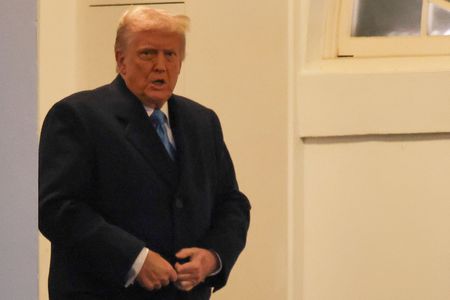By Bhargav Acharya and Tannur Anders
JOHANNESBURG (Reuters) -South Africa defended itself on Monday against attacks on its land confiscation policy by Donald Trump and his South African-born billionaire backer Elon Musk after the U.S. president said he would cut off funding to the country over the issue.
Trump said on Sunday, without citing evidence, that “South Africa is confiscating land” and “certain classes of people” were being treated “very badly”.
“I will be cutting off all future funding to South Africa until a full investigation of this situation has been completed!” he said.
South African President Cyril Ramaphosa said the government had not confiscated any land, and he looked forward to engaging with Trump to foster a better understanding over the matter.
The United States committed nearly $440 million in assistance to South Africa in 2023, the most recent U.S. government data showed. The lion’s share of the sum, $315 million, was for HIV/AIDS.
Ramaphosa said U.S. funding accounted for 17% of South Africa’s HIV/AIDS programme but it was reliant on “no other significant funding” from the United States.
The president signed into law a bill last month to make it easier for the state to expropriate land in the public interest, despite objections by some parties in his ruling coalition. The law aims to address stark racial disparities in land ownership that persist three decades after the end of apartheid in 1994.
“The recently adopted Expropriation Act is not a confiscation instrument, but a constitutionally mandated legal process that ensures public access to land in an equitable and just manner as guided by the constitution,” the presidency said.
The question of land reform is highly politically charged in South Africa due to the legacy of the colonial and apartheid eras, when Black people were dispossessed of their lands and denied property rights.
MUSK WADES IN
Musk, the world’s richest person and a South African-born U.S. citizen who has Trump’s ear and more than 200 million followers on the X social media platform that he owns, quickly waded into the dispute.
“Why do you have openly racist ownership laws?” he said in a post on X, responding to Ramaphosa who had posted the presidency statement. He was apparently suggesting white people were the victims of the racism he alleged.
Ramaphosa’s spokesperson Vincent Magwenya urged Musk to talk constructively with the South African president.
“My brother, you would know that owing to a devastating legacy of centuries of oppressive and brutal colonialism and apartheid, our constitution provides for redressing the ills of the past,” he said.
Under the Expropriation Act, special conditions have to be met before expropriating land such as it having longtime informal occupants, being unused and held purely for speculation, or being abandoned.
South Africa’s rand fell nearly 2% against the dollar early on Monday after Trump’s remarks. Stocks and the benchmark government bond also tumbled.
Charles Robertson, an emerging markets specialist at FIM Partners, said that African countries were relatively well positioned to withstand an attack by Trump because the United States was a far less important investor than China and Europe.
But any U.S. measures against South Africa would represent a serious challenge for Ramaphosa, who has been trying to boost the sluggish economy and attract foreign investors, he said.
“The difficulty with South Africa is, do you want to set up a factory in a country where today, Trump’s cutting off all aid. Maybe tomorrow, he’s ripping up AGOA (a trade deal with Africa) and maybe on Wednesday, he’s adding 25% tariffs because they’re too close to China,” he said.
(Additional reporting by Alexander Winning in Johannesburg and Libby George in London; Writing by Estelle Shirbon)






